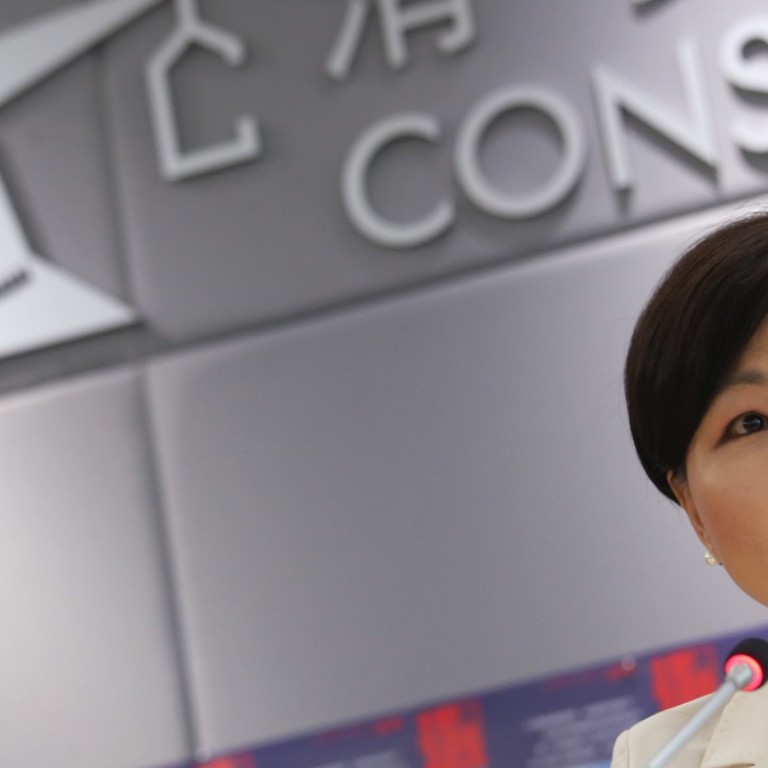
Hong Kong Consumer Council wants to go digital with green focus
Online data from product tests and lessons for schools among some of the measures planned
“What we want to achieve is that when consumers go shopping, they will take out their smartphones and search for test results conducted by the council on that particular product they may want to get,” Gilly Wong Fung-han said.
“We already have the information – the question is how we digitise it.” Wong said she wanted to use more social media and also modernise the council’s website.
“At present, our Choice magazine on the internet is in PDF format only. You cannot click though hyperlinks to go to the stories. We want to make it interactive as a shopping guide.”
The council, under the Commerce and Economic Development Bureau, currently has an annual budget of about HK$100 million and about 155 staff, a number that Wong said would need to expand in order to achieve the digitalisation target.
In addition to keeping track of existing consumption sectors, Wong said an upcoming focus is on supporting sustainable consumption.
For a lot of people, the only time they choose to practise sustainable consumption is when they get instant benefits
“It is in our three-year plan and we have planted the seeds, and we will do more in the coming years,” Wong said. “We want to educate consumers on the impact of their actions on the environment. It is about becoming a rational and practical consumer without compromising your quality of living.”
A report published by the council in 2016 found that Hong Kong people mostly knew about the concepts of sustainable consumption, but their behaviour did not reflect this.
“For a lot of people, the only time they choose to practise sustainable consumption is when they get instant benefits, such as choosing an appliance that would have the most cost savings on their electricity bill,” Wong said.
She said the council is taking a series of measures to promote sustainable consumption.
They include product tests, which will have sustainability elements wherever possible, and energy efficiency tests for all electrical appliances, as well as assessments on certain household appliances to determine if they are sustainable products.
The council has also begun a pilot scheme to teach primary school pupils about sustainable consumption, which will be expanded to secondary schools. There will also be consumer education events across different districts in the city.
“We are looking into providing information on products through eco-labels. There are lots of eco-labels on products from all over the world. You also need to help the consumer understand what they mean and which is really useful,” Wong said.

